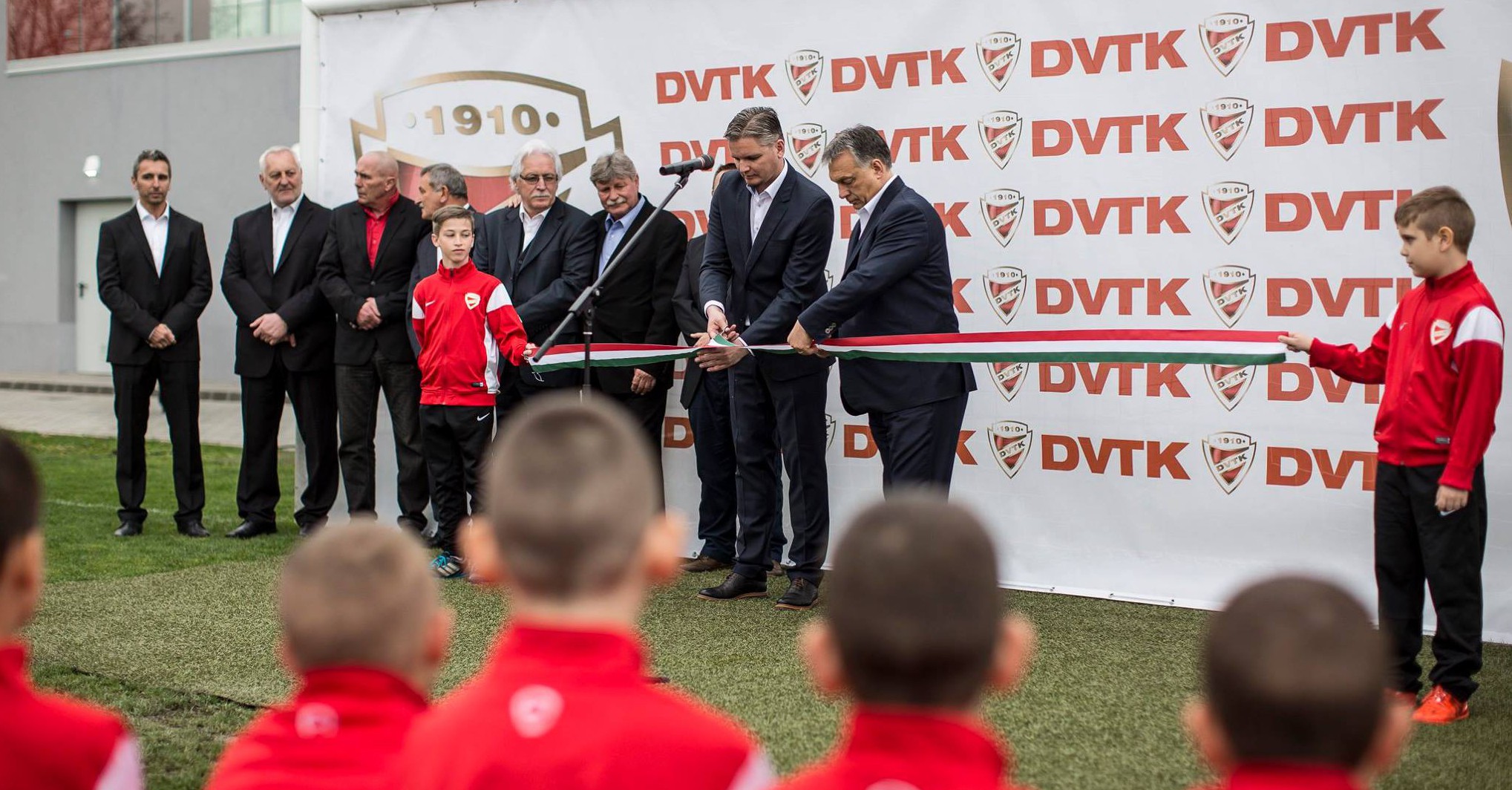
The Prime Minister was speaking to an audience of hundreds of children and young people, parents and grandparents from Miskolc and Diósgyőr: “Sport will restore Hungary’s self-respect. If we unite our efforts, if there is support, if we have the determination it takes, we can take on any nation of the world, including those bigger than us, be it in the field of science, culture or sport.”
Without self-respect, neither business nor politics can work, he said. What is needed is national self-respect, Mr. Orbán said, and in Hungary this can come from sport, “because we are the nation of Öcsi [Ferenc] Puskás, Krisztina Egergszegi, László Papp and András Balczó”. He went on to say that sport, which is a national cause, cannot be promoted on party-political lines.
Whichever party one may belong to, we are all Hungarians, and we all have an interest in Hungarians being successful, he added.
Referring to DVTK’s legendary former players – several of whom attended the event – he pointed out that football is not part of the world of money, but the world of sport, and the essence of sport – which forms part of our culture – is that it is passed on from generation to generation.
Looking at the past players, Mr. Orbán said that where there are no successful, well-respected and appreciated players from the past, there will never be successful teams in the present.
The Prime Minister specifically pointed out that from time to time there are some who attack the Government’s sports developments, and who claim that a disproportionately large percentage of public funding is allocated to sports. In response to this he cited the example of Miskolc: between 2010 and 2014 the city had access to HUF 136 billion for developments, the Government assumed a debt of HUF 31 billion, and 10 to 13 per cent of these funds were used for sports developments – including a new stadium to be built on the near future.
“In my opinion, this is the right proportion, and nothing will deter us from the goal of continuing to maintain sports as a strategic sector”, Mr. Orbán stated.
Mr. Orbán described Diósgyőr as a modern European club, assessing it as being in Europe’s middle ranks. In his opinion this is primarily thanks to owner Tamás Leisztinger and his partners.
He said that there is a need for people – regardless of their affiliation or preference – who believe in a common Hungarian future.
The Prime Minister pointed out that construction of the new 15,000-capacity football stadium in Diósgyőr will begin in autumn 2016. Other developments will also be implemented, primarily for the education of young players, he said.
In his message to children and young people Mr. Orbán pointed out that those who do not play sport will find it very hard to go far in life.
He closed his speech with the words: “Go for it, Diósgyőr!”
At the inauguration of the training centre, DVTK Managing Director Tamás Szabó said that a new era in the life of DVTK is beginning: the facility satisfies all the requirements for sport in the 21st century.
He said that one of DVTK’s strategic goals is to coordinate the training of young players in the Northern Hungary region.
The training centre cost almost HUF 900 million: 70 per cent of the project was funded from the corporation tax revenues system, while the club financed the remaining 30 per cent from its own resources. In addition to several grass and artificial turf pitches, a three-storey building was built to accommodate physiotherapy, rehabilitation and massage rooms, as well as a gym. There is also a sauna and cryotherapy room with ice bath, a medical room, a doping control room, a psychology room, an equipment room, a laundry, boot cleaning and changing rooms, offices, stores, a restaurant, a kitchen, a lounge, a conference room and a multi-functional space.
